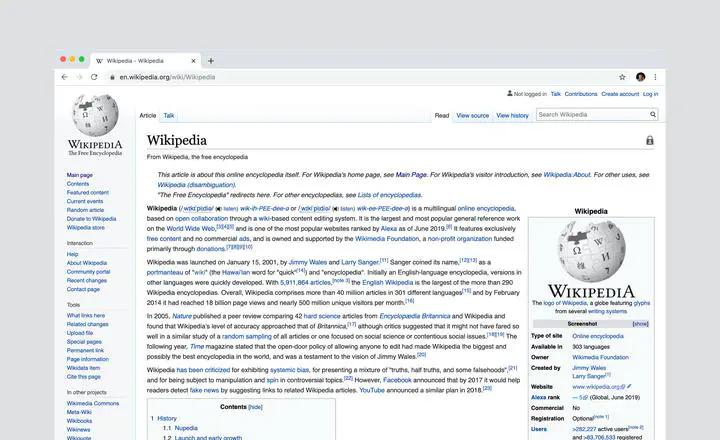Technology, Mediation, and the Nature of Knowledge
 Photo by Luke Chesser on Unsplash
Photo by Luke Chesser on UnsplashA body of work focuses on how we understand technologies to share and build our knowledge together through platforms like Wikipedia.
This work recognises that platforms mediate our interaction with knowledge, in particular communities (such as those who edit Wikipedia, and the range of communities who read - and have views on - its content). These platforms give particular functions for communities to create norms and rules, and methods to enforce and break these. Some of these norms are around how claims of knowledge may be made, for example, the use of citations in Wikipedia for verifiability of claims follows a set of norms about the kinds of claims that are suitable, and the sources that may support them.
People need to know how to evaluate the contexts in which knowledge is produced. They need to know how all knowledge is partial but that there are more and less rigorous ways of getting at the truth. Understanding this interaction between tools, communities and their norms, and knowledge is crucial for navigating information.
Led by Heather Ford, this work has investigated the literacies needed in online communities to navigate structures of knowledge, power, and authority. The idea is to apply theories of knowledge power and authority to the process of being a literate member of an online community. Literacy is a means of exercising power in Wikipedia. Keeping digital traces obscure helps the powerful to remain in power and to keep new editors from being able to argue effectively or even to know that there is a space to argue or who to argue with in order to have their edits endure. The recommendation from this work was that “Wikipedia literacy needs to engage with the social and cultural aspects of article editing, with training materials and workshops provided the space to work through particularly challenging scenarios that new editors might find themselves in and to work out how this fits within the larger organizational structure.